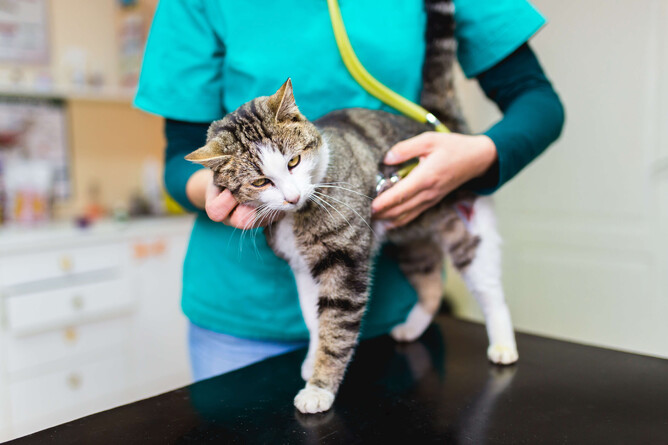Getting any sort of treatment can be stressful for your pets, no matter how great our vets are!
Travelling into clinic and being exposed to a new environment can also be challenging for some of our animal companions.
While we work hard to ensure your pets are at ease in-clinic, there are also several things that you can do to prepare them and make vet visits a more positive experience.
Exercise before the visit
If possible, take your dog to a favourite place, such as a park or beach, for a walk before going to the clinic. This can help to make their vet visit feel like an extension of a ‘fun’ outing.
Going for a walk, run, or having some play time, will also use up nervous energy, which will help your dog feel more settled while at the clinic.
Making sure they have a bathroom break before going inside will also ensure that they feel as comfortable as possible.
Make the vet clinic a familiar place
Regular visits to the clinic for other reasons, such as purchasing dog food, treats, or toys, can help your dog to feel more at ease there.
Do not feed your pet before the visit
We recommend not feeding your pet before visiting the vet (unless they require food with any medication that they are taking). Travelling on an empty stomach will reduce the chance of travel sickness.
Also, if they are feeling a little bit hungry, they will be more receptive to the treats they receive at the vet clinic, which will increase the positive reward value of the treats and help them remember the clinic as a good place to visit.
If your pet is fussy about treats, you can bring some of your own that you know they love.
Bring a familiar item from home
Bring along something familiar and cuddly from home, such as a blanket or a favourite toy, so that they can gain comfort from the familiar scent and texture.
Use a carrier, if needed
If you are bringing in a cat, or an anxious small dog, use a carrier.
The advantage of this is that you can familiarise your pet with it for several days or a week ahead of time, and line it with a comfortable blanket from home, so that they feel safe when they are inside it.
If the waiting room at the clinic is busy or noisy, you can help them stay calm by covering the carrier with a cloth, to help them feel sheltered, and safe.
Calming aids
Dogs and cats communicate with each other by releasing pheromones, which are natural chemical signals that can only be perceived by other animals of the same species.
Many of these pheromones give relaxing and reassuring signals. For example, mother dogs and cats produce pheromones that provide their offspring with feelings of safety, security, and harmony.
Adaptil and Feliway are products designed to replicate these pheromones and provide comforting messages to either cats or dogs; reducing signs of anxiety or stress.
Adaptil helps dogs feel reassured and relaxed in challenging situations, while Feliway mimics the calming scents, that make cats feel less anxious and stressed.
Adaptil and Feliway are not drugs, so therefore have no side effects and cannot be overdosed, providing a safe option to help calm your pet during times of stress.
Stay calm
Lastly, keep yourself calm and treat the visit as ‘just another outing’ with your pet.
Our pets tune into our emotions and will react to any anxiety you may be feeling. So, stay calm, move and speak slowly, and give your pet lots of reassuring praise.
This will minimise tension and make your visit to the vet as stress-free as possible.
You can also talk to one of the team members in our clinic for advice and other options to help with highly anxious pets.

